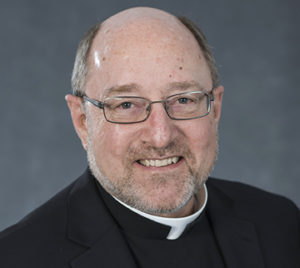Fourteenth Sunday of Ordinary Time
July 7, 2019

Readings:
Reading 1: Isaiah 66: 10-14C
Psalm: 66: 1-3, 4-5, 6-7, 16, 20
Reading 2: Galatians 6: 14-18
Gospel: Luke 10: 1-12, 17-20
Some of you may remember a movie that came out in 1988 called “The Accidental Tourist.” Based on a novel by Anne Tyler, the main character Macon Leary, played by William Hurt, is a writer of travel books. He experiences a life changing tragedy when his 12-year-old son is killed. Much of the movie deals with the aftermath of this terrible loss and particularly how this death affected his marriage. It is not necessary to go into all of the details of the plot, but one of the things that impressed me was the way Anne Tyler used his particular manner of writing his travel books as a key for describing the way he was living his life.
Leary’s travel books are popular because he gives people all of the information necessary in visiting a place so that they will never be confronted with anything unfamiliar. The goal of his books is to promote travel but to remain totally unaffected by the new place and people — in essence to never leave your comfort zone, to be “an accidental tourist.” A kind of monument to accidental tourism is Epcot Center in Florida. There you see facsimiles of great world architecture — China, Tibet, Morocco, Italy, Japan — with “performers” who dress as if they are from these countries. But there is no need for a passport, no mess or bad smells, no beggars. Everyone speaks English and everyone takes American dollars. Epcot, like Macon Leary’s travel philosophy, is always safe — but ultimately doesn’t really give you the real thing. It offers an experience of travel that has little possibility of changing anyone, since everything is just like home — it promotes “accidental tourists.”
How different is Jesus’ command today in sending out the seventy-two. They are far from accidental tourists. They are to carry no moneybag, no sack, no sandals. Nothing to cushion them from possible inconveniences “on the way.” They are sent out defenseless like lambs among wolves. The only thing that they do have is a message — a message of peace, a message of good news — “that God is near, that if you just stop what you are doing for a moment and focus, you’ll be able to experience that same love that God has poured into our hearts and which we proclaim in our preaching about the Reign of God.” It’s a love that has the power to transform, to triumph over evil — to cast out demons. They were missioned to preach what was truly Good News to many of the poor of first century Palestine: that all have access to God — especially the poor and the marginalized — those who are considered unclean, unwanted and unloved. One of the reasons that they had such phenomenal success is because they were willing to take risks, to be defenseless and thereby place all of their confidence not in their own abilities, but in God.
Luke describes this mission of proclaiming the Gospel as a message to be taken to the whole world. The third book of Isaiah, in speaking about bringing the nations into God’s peace flowing toward Jerusalem. It also likens our relationship with God with that beautiful image of God as a loving mother caring for her nursing child: “as a mother comforts her child, so I will comfort you.” This is the God to be proclaimed to all who will hear — despite the risks of rejection and even violence.
Today we who claim to be disciples of Christ, are challenged by these readings. Instead of being “accidental tourists” we are urged to take risks, to share the incertitude and suffering of others’ lives. For example, no follower of Jesus who has really seen the suffering of children and their parents on our southern border can remain indifferent and unmoved. This awareness is capable of transforming us to speak out against this injustice — so that when we proclaim our God who loves us like a mother — our words will be believable. As we gather around the table of the Eucharist we give thanks for those who have been sent on mission before us and who helped bring us to realize our common brotherhood and sisterhood in the One who has challenged us not to be accidental tourists.
Rev. Mark R. Francis, CSV
President
Professor of Liturgy